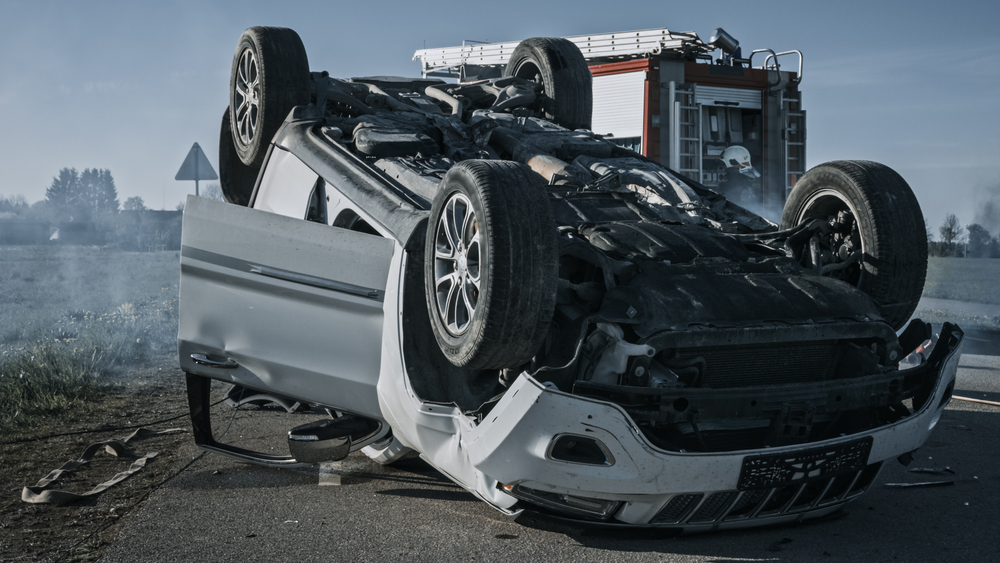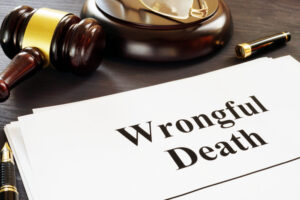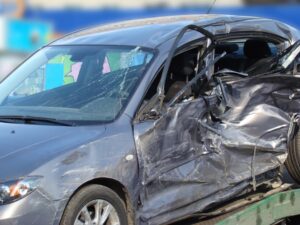
When someone dies in a car accident, California law allows specific surviving family members to pursue justice and financial compensation through a legal action called a wrongful death claim. This process allows you to hold the negligent party accountable for the immense loss your family has suffered.
If you’re facing this difficult reality, a wrongful death lawyer provides the guidance and advocacy you need. They possess insights that help families understand their rights, challenge an at-fault driver’s account, and work toward a resolution.
Key Takeaways
The aftermath of a fatal accident is confusing, but a clear path forward exists. Here is what you need to know:
- California law provides families with two primary legal options: a wrongful death claim to compensate for the family’s personal losses and a survival action to cover the deceased’s expenses and suffering before their death.
- Financial recovery can cover economic damages like lost future income and end-of-life expenses, plus non-economic damages for loss of love, community, and companionship.
- A successful fatal car accident lawsuit depends on convincing evidence of the other party’s negligence, such as distracted driving or speeding.
Understanding Your Legal Rights After a Fatal Crash
 The moments and days after a fatal collision on a street like Ming Avenue or the Rosedale Highway can feel like a blur. As the immediate shock gives way to reality, you’re left with difficult questions on top of your grief.
The moments and days after a fatal collision on a street like Ming Avenue or the Rosedale Highway can feel like a blur. As the immediate shock gives way to reality, you’re left with difficult questions on top of your grief.
The legal system provides a framework for holding at-fault parties responsible. Two distinct but related types of legal actions apply when a car accident results in a death.
Wrongful Death Claims
A wrongful death claim focuses on the harm that surviving family members experience due to their loved one’s passing. The purpose is to compensate you for the loss of your loved one’s companionship, support, and contributions. In California, the law grants this right to specific individuals.
California law prioritizes the following relationships for filing a claim:
- Surviving Spouse: The person who was legally married to the deceased at the time of their death has a primary right to bring a wrongful death action.
- Domestic Partner: A registered domestic partner is granted the same legal standing as a surviving spouse and can file a claim to seek compensation for the loss.
- Surviving Children: The deceased’s biological and adopted children are also given top legal priority to initiate a wrongful death lawsuit.
If no one from this primary group exists, the law extends the right to file a claim to others who would inherit from the estate, which often includes the deceased’s parents or siblings.
Survival Actions
While a wrongful death claim compensates the family, a survival action addresses the losses the deceased person suffered before their passing. This legal claim is filed on behalf of the deceased person’s estate.
It essentially allows the estate to “stand in” for the deceased and recover damages they would have been able to seek if they had survived the crash. Compensation can include the medical bills incurred between the accident and the time of death.
If the evidence shows the deceased person experienced pain and suffering before they passed, the estate may also pursue damages for that suffering.
Proving Negligence in a Fatal Accident
Every fatal car accident lawsuit requires proof that another party’s negligence caused the death. Negligence means someone failed to act with reasonable care, resulting in harm. Your attorney gathers evidence to establish the four elements of negligence.
These are the four core components:
- Duty of Care: The at-fault driver had a legal obligation to operate their vehicle with reasonable caution and obey all traffic laws to prevent causing harm to other motorists, passengers, and pedestrians.
- Breach of Duty: The driver violated this legal duty through a specific negligent or reckless act, such as driving under the influence of alcohol, speeding through a neighborhood near Hart Park, or texting while driving.
- Direct Causation: You must establish a clear and direct link showing the driver’s specific breach of duty was the factual and proximate cause of the accident that resulted in your loved one’s tragic death.
- Quantifiable Damages: Your family must have suffered measurable financial and personal losses as a direct result of the death.
Compensation Available in a Fatal Car Accident Case
 No amount of compensation can replace a lost family member. A car accident death settlement can, however, provide the financial stability your family needs to move forward. It also serves as a form of accountability for the party whose negligence caused the tragic loss.
No amount of compensation can replace a lost family member. A car accident death settlement can, however, provide the financial stability your family needs to move forward. It also serves as a form of accountability for the party whose negligence caused the tragic loss.
The damages available depend on the type of claim filed and the specific facts of your case.
Recovering Economic Damages
Economic damages refer to the measurable financial losses that stem from your loved one’s death. Your car accident lawyer proves these tangible costs and losses with bills, receipts, and expert analysis. A thorough accounting of these damages is vital in any fatal car accident lawsuit.
Common examples include:
- End-of-Life Expenses: This category covers all documented and future costs for funeral, cremation, and burial services, along with any outstanding medical bills for emergency response, hospitalization, and other treatments your loved one received after the accident and before their passing.
- Lost Financial Support: This calculation projects the full amount of income, wages, salary, retirement benefits, and other financial contributions your loved one would have provided to the family had they completed a normal lifespan and career.
- Loss of Household Services: This represents the reasonable monetary value of the routine tasks and services the deceased regularly performed for the family, such as childcare, home repairs, property maintenance, meal preparation, and managing household finances.
- Loss of Future Inheritance: You may pursue compensation for the value of any assets or inheritance that the deceased person would have reasonably accumulated over their lifetime and passed on to their heirs had they not passed away.
Pursuing Non-Economic Damages
Non-economic damages represent the human losses that the family endures. They compensate for the emotional and personal impact of the death. Valuing these losses requires a compassionate and experienced legal perspective.
In a wrongful death claim, non-economic damages may cover:
- Loss of Love and Companionship: This addresses the immense emotional loss of the unique bond, affection, and personal connection that you shared with your family member.
- Loss of Moral Support and Guidance: You may recover compensation for the loss of the care, comfort, advice, and guidance your loved one provided.
- Loss of Consortium: This applies specifically to a surviving spouse or domestic partner and refers to the loss of the complete marital relationship, including intimacy, affection, and companionship.
The Role of Punitive Damages
In some rare cases involving a fatal car crash, a court may award punitive damages in a survival action. These are not meant to compensate the family for their losses. Instead, they serve to punish the defendant for extreme misconduct and to deter others from similar behavior.
For punitive damages to be considered, the defendant’s actions must show a conscious disregard for the safety of others, such as a drunk driver who caused a deadly accident on Highway 99.
How a Lawyer Helps When Someone Dies in a Car Accident
When you’re grieving, the thought of pursuing a legal case is taxing. An attorney’s role is to lift that burden from your shoulders and handle every legal detail. This allows you to focus on your family while a professional works to protect your legal rights and financial future.
Investigating the Accident
A thorough investigation is the bedrock of a successful claim. Your lawyer moves quickly to preserve critical evidence that proves the other party’s fault.
Your legal team’s investigative process includes these steps:
- Evidence Preservation: Your attorney’s team acts immediately to secure and professionally analyze all critical physical evidence, including vehicle black box data recorders, driver cell phone records, and any surveillance footage from nearby businesses.
- Witness Interviews: Your lawyer can locate and obtain recorded statements from all available eyewitnesses to establish an independent and unbiased account of the events leading up to the fatal collision.
- Official Document Retrieval: Your attorney will request, gather, and organize all essential paperwork for your case, including the official police report, the coroner’s report, autopsy results, and the at-fault driver’s official driving record.
Calculating the Full Extent of Your Losses
Determining the true value of a wrongful death claim is complex. Attorneys have the resources to assess all that your family has lost. This often involves collaborating with financial professionals to project a lifetime of lost income, benefits, and support.
A detailed calculation ensures your family seeks a settlement that provides proper financial security for the future.
Handling All Communication With Insurance Companies
Shortly after a fatal accident, insurance adjusters for the at-fault party will likely contact you, aiming to settle the claim for as little as possible. Your lawyer takes over all communications, protecting you from pressure to accept a low offer or make a statement that could be used against your family’s interests.
They handle the negotiations, presenting a well-documented case for the full compensation you are seeking.
FAQ for What Happens When Someone Dies in a Car Accident?
What Is the Statute of Limitations for a Wrongful Death Claim in California?
In California, the statute of limitations for filing a wrongful death lawsuit is generally two years from the date of the person’s death. There are very limited exceptions to this rule. If you fail to file your lawsuit within this two-year window, you’ll likely lose your right to pursue compensation forever.
Can I Still File a Lawsuit if My Loved One Was Partially at Fault?
Yes, you can still file a lawsuit even if your loved one was found to be partially at fault for the accident. California follows a pure comparative negligence rule, which means your family’s compensation will be reduced by your loved one’s percentage of fault.
What Is the Difference Between a Wrongful Death and a Survival Action Claim?
A wrongful death claim compensates surviving family members for their own losses, such as the loss of companionship and financial support. The deceased person’s estate files a survival action to recover damages the deceased themselves incurred before passing, like their medical bills.
Do I Have To Go to Court When a Loved One Dies in an Accident?
Most wrongful death cases settle out of court through negotiations between your attorney and the insurance company. A settlement avoids the time and uncertainty of a trial. However, if the insurance company refuses a fair offer, your attorney can take your case to trial to fight for a just outcome.
What Happens When Someone Dies in a Car Accident and the Other Driver Was Uninsured?
You may be able to file a claim under your own loved one’s auto insurance policy if your loved one had Uninsured/Underinsured Motorist (UM/UIM) coverage. This type of coverage is specifically designed to protect you when the at-fault driver doesn’t have insurance or insufficient coverage.
A Compassionate Ally for Your Family’s Future
 The path forward after losing a loved one isn’t one you have to walk alone. Securing your family’s financial future is a powerful way to honor their memory and begin the healing process. You need an advocate who will listen with compassion and fight with conviction.
The path forward after losing a loved one isn’t one you have to walk alone. Securing your family’s financial future is a powerful way to honor their memory and begin the healing process. You need an advocate who will listen with compassion and fight with conviction.
The Law Offices of Mickey Fine is here to provide the support and legal representation your family needs. We’re dedicated to holding negligent drivers accountable and helping families in Bakersfield find a sense of justice.
Contact us today for a free consultation at (661) 333-3333 to discuss your case.
